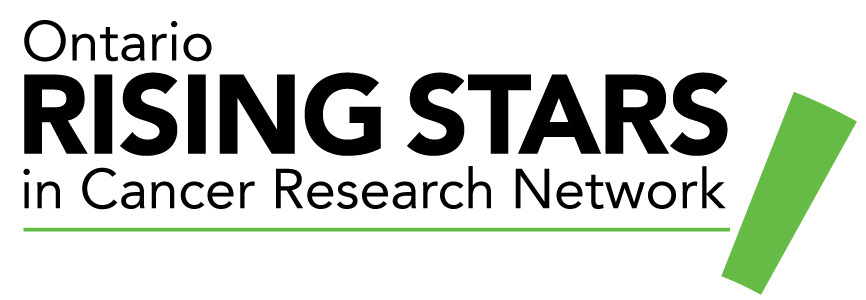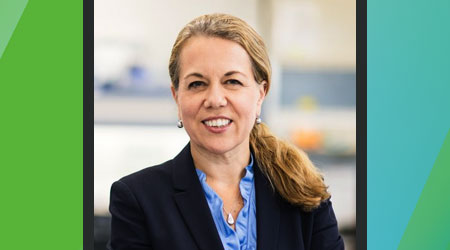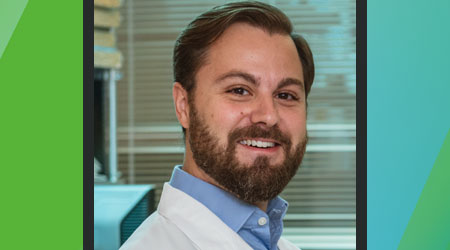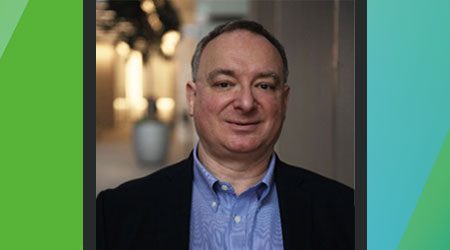May 12, 2022, 2:45 – 4 p.m. ET

The Fireside Chat connects students and early career researchers with leaders in cancer research for an informal discussion on navigating a successful career in the field.
Hosted by the Ontario Rising Stars in Cancer Research Network (Rising Stars), the event includes presentations from leaders in academia and industry about their careers, a moderated panel discussion and an opportunity for attendees to ask questions. Our next event features three leaders in cell and gene therapy: Dr. Catherine Bollard (Children’s National Hospital), Dr. Jonathan Bramson (McMaster University) and Dr. Parvez Vora (Century Therapeutics).
Graduate students, postdoctoral fellows, early career researchers and entrepreneurs from across Ontario are invited to join the Fireside Chat and help take the next step in their career.
Agenda
2:45 p.m. Opening remarks – Dr. Laszlo Radvanyi, President and Scientific Director, OICR
2:50 p.m. Personal perspectives on navigating a career in cell & gene therapy
- Dr. Catherine Bollard (Children’s National Hospital)
- Dr. Jonathan Bramson (McMaster University)
- Dr. Parvez Vora (Century Therapeutics)
3:20 p.m. Discussion and audience Q&A – Moderated by Dr. Andrew Giacometti, Princess Margaret Cancer Centre
3:55 p.m. Closing remarks – Dr. Laszlo Radvanyi, President and Scientific Director, OICR
4:00 p.m. End of broadcast
Take a deeper dive into cell and gene therapy
This Fireside Chat follows the Ontario Institute for Cancer Research and Johnson & Johnson Innovation (JLABS) seminar, “How cell and gene therapies can transform the treatment of solid tumours”, featuring Drs. Bollard, Bramson and more. Click here for all details and to separately register for this event.
Speaker Bios

Catherine Bollard, MBChB, MD, FRACP, FRCPA
Bosworth Chair for Cancer Biology | Director, Center for Cancer and Immunology Research | Professor of Pediatrics and of Microbiology, Immunology and Tropical Medicine | Director, Program for Cell Enhancement and Technologies for Immunotherapy | Children’s National Health System | The George Washington University School of Medicine and Health Sciences
Dr. Catherine Bollard received her medical degree at the University of Otago in Dunedin, New Zealand. She is board certified both in pediatrics and hematology. She worked in New Zealand and London, England, before moving to Houston, Texas, in 2000 where she was a Professor of Pediatrics, Medicine, and Immunology at Baylor College of Medicine (BCM) and the Director of the Texas Children’s Cancer and Hematology Center Pediatric Lymphoma Program. In August 2013, she was recruited to Washington, DC, to join Children’s National Health System and The George Washington University School of Medicine and Health Sciences. She is currently the Bosworth Chair for Cancer Biology, the Director of the Center for Cancer and Immunology Research, and the Director of the Program for Cell Enhancement and Technologies for Immunotherapy (CETI) at Children’s National Health System. She is a Professor of Pediatrics and of Microbiology, Immunology, and Tropical Medicine at The George Washington University and the Associate Center Director for Translational Research and Innovation at the GW Cancer Center. Catherine is a member of the American Society for Clinical Investigation (ASCI), is a past president of the International Society for Cellular Therapy (ISCT), and is the current President of the Foundation for the Accreditation of Cellular Therapy (FACT). She was a member of the Cellular, Tissues, and Gene Therapies Advisory Committee of the Food and Drug Administration (FDA) from 2015 to 2019 and in 2019 she became a member of the Frederick National Laboratory Advisory Committee (FNLAC) for the NIH and an ad hoc member of the Pediatric Oncologic Drugs Advisory Committee (ODAC) for the FDA. She was an associate editor for the journal Blood from 2014-2021 and is currently Editor in Chief of Blood Advances. She has >200 peer reviewed publications and has been independently NIH funded for over a decade. Her bench and translational research focuses on improving outcomes for patients after hematopoietic stem cell transplantation and on the development of novel cell therapies for cancer and virus-associated diseases.

Parvez Vora, PhD
Site Head, Century Therapeutics
Dr. Parvez Vora is the Site Head of Century Therapeutics Canada, an innovative biotechnology company that harnesses the power of iPSC to develop immuno-oncology products. Parvez leads the research group tasked to develop iPSC-derived allogeneic immune cell therapies against brain cancer. Before that, he co-founded Empirica therapeutics along with Dr. Sheila Singh (McMaster) and Dr. Jason Moffat (University of Toronto). As Director of preclinical development, he was responsible for all R&D activities in Empirica. He also supported the leadership in engaging, negotiating and executing potential scientific and business deals. Empirica was acquired by Century therapeutics in June 2020.
Parvez earned his Master’s degree from the University of London, UK and a Doctoral degree from the University of Manitoba. He then trained at McMaster Stem Cell and Cancer Research Institute in Dr. Singh’s lab as a postdoctoral fellow and, following then, as a program scientist. During his tenure at McMaster, he developed, designed and implemented preclinical tumor efficacy studies for various therapeutic modalities, including conventional chemoradiotherapy, humanized synthetic antibodies and adoptive T-cell therapies.
Before incorporating Empirica, Parvez worked at the Centre for Commercialization of Antibody & Biologics (CCAB). He assisted in commercialization activities, including managing external alliances and liaisons for co-development projects and new company creation. As a MITACs Elevate fellow, Parvez also worked at Arch Biopartners and led the preclinical development of MetaMx, a peptide-based therapy that specifically targets the brain tumour initiating cells (BTICs).

Jonathan Bramson, PhD
Vice-Dean – Research, Faculty of Health Sciences and Professor, Department of Medicine, McMaster University
Dr. Jonathan Bramson is the Vice Dean – Research for the Faculty of Health Sciences and a Professor in the Department of Medicine at McMaster University. He holds the John Bienenstock Chair in Molecular Medicine. His research is focused on the use of cells as drugs. Specifically, his lab is developing methods to manufacture white blood cell “drugs” that attack cancer. To optimize the anti-tumour activity of these white blood cell drugs, his research team is using a combination of genetic engineering, synthetic biology and chemical biology approaches to re-wire relevant signaling pathways within white blood cells to bolster their anti-tumour potency.

Dr. Andrew Giacomelli
Postdoctoral fellow, Princess Margaret Cancer Centre
Dr. Andrew Giacomelli is a postdoctoral fellow in the Tumor Immunotherapy Program at the Princess Margaret Cancer Centre with extensive experience in functional genomics and drug discovery.
Andrew earned his B.Sc. and M.Sc. in Biochemistry at McMaster University under the mentorship of Dr. John Hassell, in whose lab he performed high-throughput screens to identify small molecules that selectively target breast tumor-initiating cells. Andrew then pursued a Ph.D. in Biological and Biomedical Sciences at Harvard University and conducted research in Dr. Bill Hahn’s lab at the Dana-Farber Cancer Center and the Broad Institute. During his doctoral training, he deployed CRISPR/Cas9 screens, saturation mutagenesis screens, and computational modeling to understand why cancers select for specific missense mutations in the p53 tumor suppressor gene.
In his postdoctoral work, being carried out in Dr. Pam Ohashi’s lab, Andrew uses high-dimensional single cell approaches to systematically characterize malignant, immune, and stromal cells within tumors to identify new targets for immunotherapy.

Laszlo Radvanyi, PhD
President and Scientific Director, OICR
Dr. Laszlo Radvanyi has extensive cancer research experience in academia as well as in the pharmaceutical industry both in Canada and in the US. After completing his PhD in Clinical Biochemistry and Immunology at the University of Toronto, Laszlo was granted a Cancer Research Institute Postdoctoral Fellowship at Harvard Medical School in Boston, MA. He then joined Sanofi Pasteur as a Senior Scientist, where he co-led a cancer vaccine antigen discovery and validation team for five years. Laszlo then relocated to Texas where, for ten years, he was a Professor in the Department of Melanoma Medical Oncology at the University of Texas, MD Anderson Cancer Centre. While at MD Anderson, he established a GMP-grade T-cell therapy manufacturing program for metastatic melanoma using expanded tumour-infiltrating lymphocytes (TIL) and performed basic research on TIL biology and effector function for which he received an MD Anderson Division of Cancer Medicine Research Award. Prior to joining OICR, Laszlo was the Senior Vice President and Global Head of the Immuno-Oncology Translational Innovation Platform at EMD Serono (Merck KGaA, Darmstadt, Germany). He also served as a Senior Scientific Advisor for EMD Serono, specializing in immunology and immuno-oncology. While at EMD Serono, Laszlo rebuilt and re-organized EMD Serono’s immuno-oncology research platform and rejuvenated their immuno-oncology research pipeline. He recruited key talent and established influential partnerships with academia that focused on biomarker-driven clinical trials. Notably, Laszlo established an alliance between EMD Serono and Pfizer for the development of anti-PD-L1 (avelumab) and co-led EMD Serono’s CAR T-cell program in partnership with Intrexon and Ziopharm. Laszlo also has experience in biotech drug discovery and development (founding CSO for Iovance Therapeutics). Iovance is the first company to develop a commercial process for the manufacturing of TIL and TIL therapy for cancer patients making this a reality after decades of academic research. He was a past Associate Editor for the Journal of Immunotherapy for Cancer (JITC), currently serves on the Keystone Conferences Scientific Advisory Board, and serves on grant review panels for numerous national and international agencies. Laszlo also serves on advisory boards for numerous biotechnology companies in the oncology field.
